Executive Summary
AI enables computers to make autonomous decisions. It is a step forward in automation that is changing the retail industry. In retail, AI is used to analyze customer data, adapt how companies interact with shoppers and predict consumer demand in order to better manage inventory.
For example, AI can decide for the retailer what items to show to shoppers and how to display and present them, and it can recreate the interaction that the shopper experiences with store associates at brick-and-mortar stores by guiding and advising the customer.
AI enables retailers to drive sales and anticipate demand, gain a better understanding of consumer behavior and offer highly accurate, individualized promotions.
A number of retailers work with tech companies to develop AI services.
- Lingerie retailer Cosabella is working with tech firm Sentient to develop technology aimed at retail experience personalization.
- British online retailer Shop Direct and IBM are developing an AI-powered chatbot that can detect customers’ moods.
- German online retailer Otto Group is working with tech firm Blue Yonder to develop an inventory management system that uses AI to predict customers’ future orders.
Retailers are making significant investments in this technology and the retail industry is the third-largest end-market for its application, according to market intelligence firm Tractica.
Retailers that aim to remain competitive cannot ignore the benefits of the application of AI technology to their operations—in particular, the ability to provide a personalized and straightforward shopping experience and to scale up the use of customer data.
With consumers bombarded with an unprecedented amount of information, the ability to deliver highly personalized content for each customer could be crucial to staying ahead of the competition, while the possibility of anticipating demand and estimating when items will be returned should translate into more efficient business operations.
Introduction
AI is a step forward in automation that is already changing the retail industry. AI enables retailers to drive sales and anticipates demand, to gain a better understanding of consumer behavior and to offer highly accurate individualized promotions.
AI will likely have a significant impact on the retail industry, and retailers that aim to remain competitive cannot ignore the potential benefits of this technology.
This report shows how the technology is changing the way retailers operate and provides examples of how important industry players work with tech companies to develop AI-powered solutions. We consider what the impact of AI could be in retail and outline the main reasons for retailers to invest in the technology. Finally, we feature a Q&A with Michael Feindt, Founder and Chief Scientific Officer at Blue Yonder.
AI in Retail Operations
AI automates decisions through algorithms informed by machine learning, a technology that enables computers to observe and learn from large sets of data and make decisions without the need for human input.
Retailers use AI to analyze customer data in order to gain a better understanding of consumer behavior, to adapt the approach through which the company interacts with shoppers and to predict consumer demand.

Source: Fung Global Retail & Technology
AI is a step forward from previous applications of computing to retail operations, which offered more basic automation. Through AI, computers can observe data, strategize and then implement a strategy.
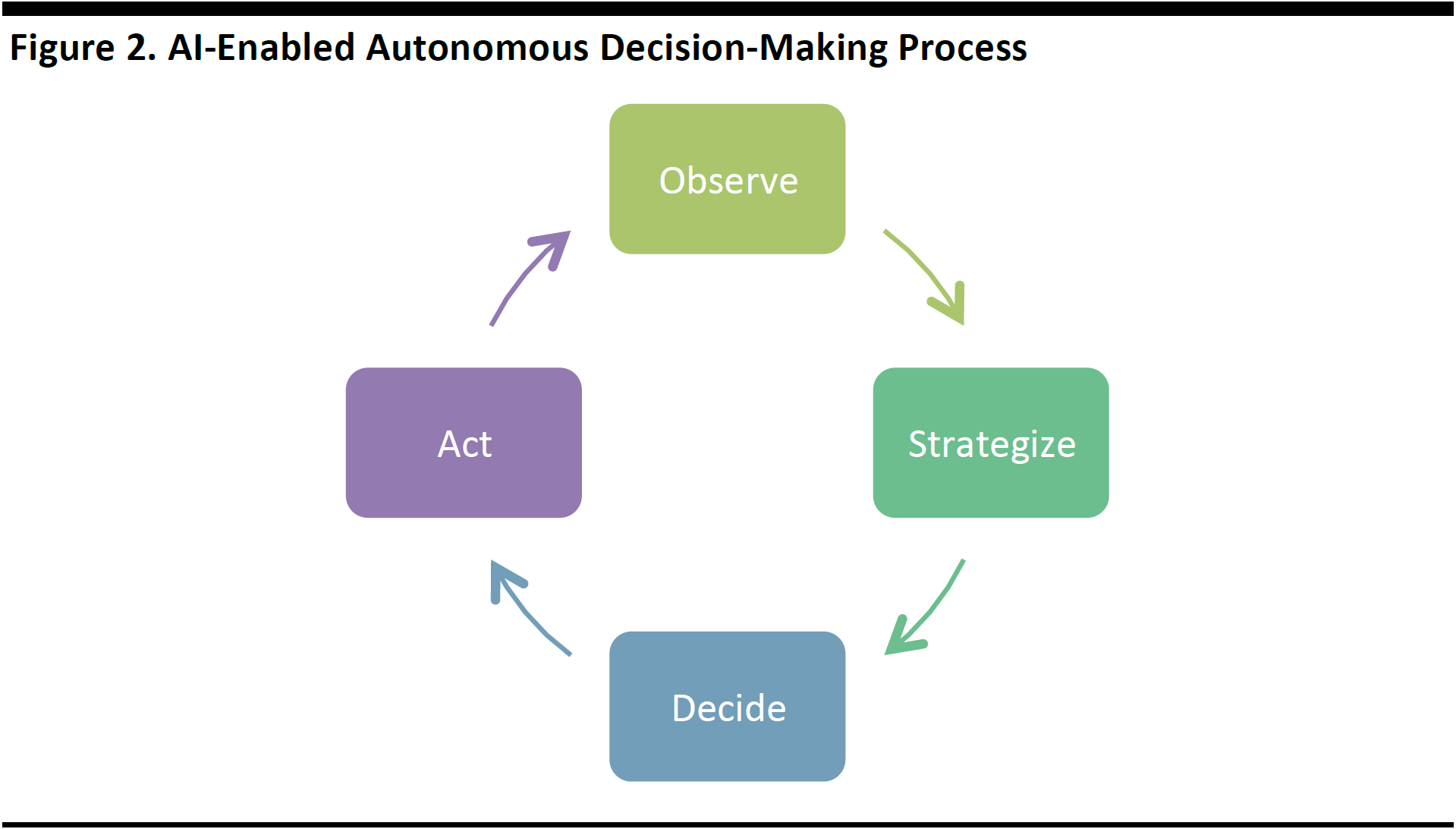
Source: Sentient/Fung Global Retail & Technology
We identify three main applications of AI in retail:
- Personalization: AI enables retailers to provide a personalized approach to each customer through a customization of shopping recommendations, e-commerce and m-commerce portals layout and promotions.
- Customer service: AI is used to operate chatbots that mimic the client’s interaction with a sales associate or a customer-care assistant. The technology is able to detect the tone of the user’s messages and understand what is the best way of responding to the client’s need.
- Inventory management: Retailers can predict what customers are likely to buy in the near future, thanks to data analytics powered by AI. This enables retailers to maximize the probability of having the right items in stock as the customers order them, which results in faster fulfillments and leaner inventory operations.
AI is already widely used in retail, but the technology tends to have a low profile. In a survey of UK retailers published in 2017by specialist publication
Retail Week and retail tech firm Qubit, some 38% of respondents were already applying AI to their business operations, and 48% were already using machine learning.
Half of the retailers questioned for the
Retail Week/Qubit survey use the analytic and predictive ability of AI to drive sales and anticipate demand, while 46% use the technology to gain a better understanding of consumer behavior and to offer highly accurate individualized promotions, as shown below.
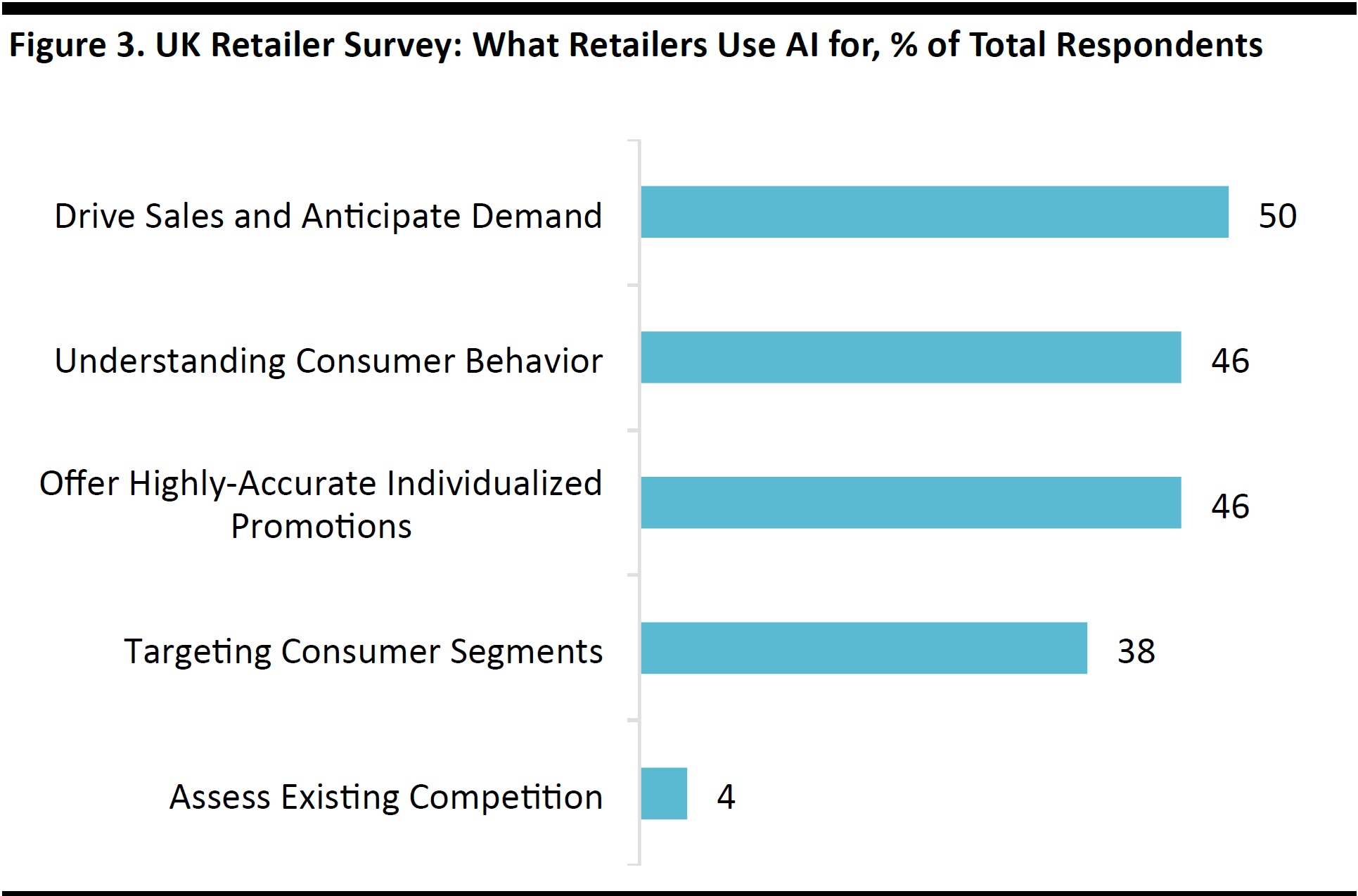
Survey published in 2017.
Source: Retail Week/Qubit
Retailers and Tech Firms Collaborate to Apply AI
Amazon, Shop Direct and Otto Group are among the retailers using AI. In this section, we profile selected examples of how retailers are collaborating with tech companies to implement AI solutions for the three aforementioned applications in personalization, customer service and inventory management.
Intelligent Personal Assistance: Amazon Echo and Alexa
Amazon Echo is one of the best-known applications of AI by a retailer. Amazon Echo is a small device with an embedded microphone that connects the user to Amazon’s AI-powered intelligent personal assistant Alexa. The device enables the user to receive information and services by voice command. For example, Alexa can answer questions, provide information, play music, control Internet-connected home systems such as lighting, order take-away and request a taxi ride.
Amazon Echo is also another channel through which the user can buy products on Amazon’s marketplace. Users of the Amazon Echo device can ask Alexa to shop for products, but only those users with Prime memberships can buy directly through the virtual assistant via voice commands. Customers who are not Prime members are limited to adding items to their online baskets through Alexa; they then have to check out on the Amazon website or app. For nonspecific product requests such as “buy dog food,” Alexa analyzes the user’s order history to find relevant products before fulfilling the command.
Voice shopping is likely to work particularly well for replenishment purchases of lower-value, everyday items. Consumers typically buy food products, toiletries and household-care goods by brand, so do not need to see the product before they check out. Alexa should, therefore, help Amazon build share in groceries.
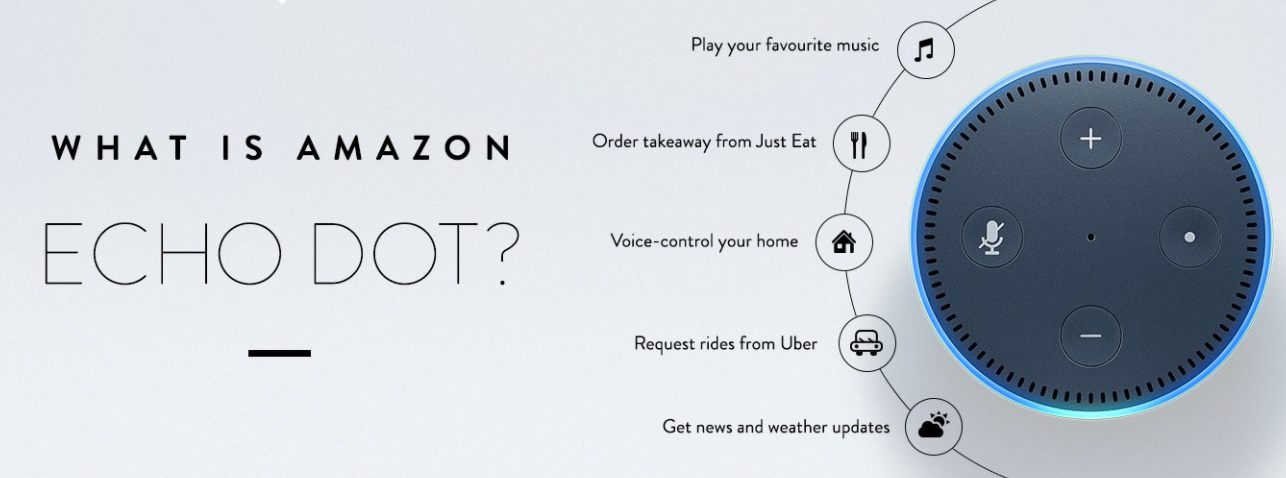
Source: amazon.co.uk
Alexa was built on the technology developed by Evi, a British startup acquired by Amazon in 2012 that developed the software capable of accurately interpreting questions and framing more natural, conversational answers, the features that stand behind Alexa.
Retail Personalization: Sentient Technologies and Cosabella, Mad Street Den and Vue.ai
Cosabella: Lingerie firm Cosabella collaborated with tech company Sentient Technologies to deploy AI on its website. Cosabella uses an AI-powered algorithm to test alternative options for its website design based on the conversion rate generated by each variant. Traditionally, this process would have been carried out with A/B testing, which is quite time-consuming. The optimization of website design through AI resulted in a 30% increase in conversion rate, according to Cosabella.

Source: cosabella.com
 Sentient Technologies:
Sentient Technologies: Sentient also uses AI to help retailers increasing m-commerce conversion rates. The tech firm developed a mobile-friendly interface that encourages shoppers to interact by highlighting which products they like and do not like. The service learns from this information and uses it to recommend only the products that match each customer’s style, in the same way, a store associate could do in a brick-and-mortar store. This creates a more engaging and simpler way of shopping with a smartphone, and the company says it results in about 150 possible layout variations and a 38% increase in conversion rates.
The application of AI is particularly useful in m-commerce, where screen space is limited and it is very important to highlight the most relevant products for the customer. Currently, smartphones see a lower conversion rate compared to desktops—just 1.55% versus 4.14% in the fourth quarter of2016, according to analysis by tech firm Monetate.
Vue.ai: Another AI-powered service is offered by Vue.ai, a sub-brand of Indian tech startup Mad Street Den. The AI technology behind Vue.ai enables retailers to personalize the website based on individual shoppers’ preferences. The technology learns from shoppers’ browsing and shopping histories and displays items that match their preferences and provides personalized shopping recommendations. The service generates an increase of 144% in product viewing and a 110% increase in average order value, according to the company.
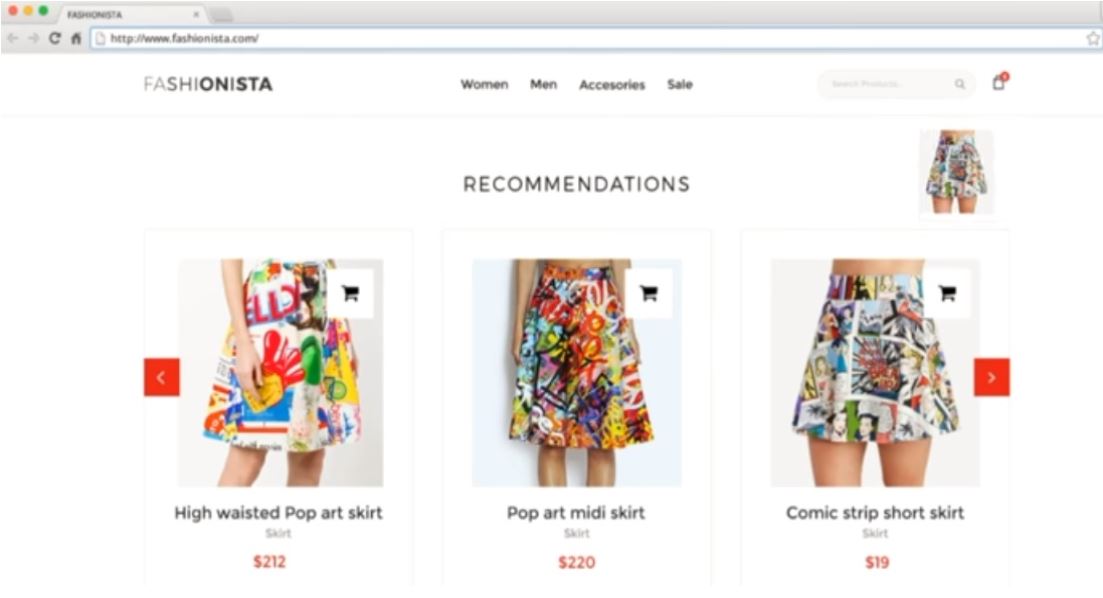
Personalized Online Customer Journey Powered by Vue.ai AI Solution.
Source: vue.ai
Customer Assistance: Shop Direct and IBM
British pure-play online retailer Shop Direct is working with IBM to develop an AI-powered chatbot that can detect a customer’s mood. The service—which is set to be launched later this year—uses IBM’s AI software Watson to detect users’ moods based on the words they use and the tone of their messages.
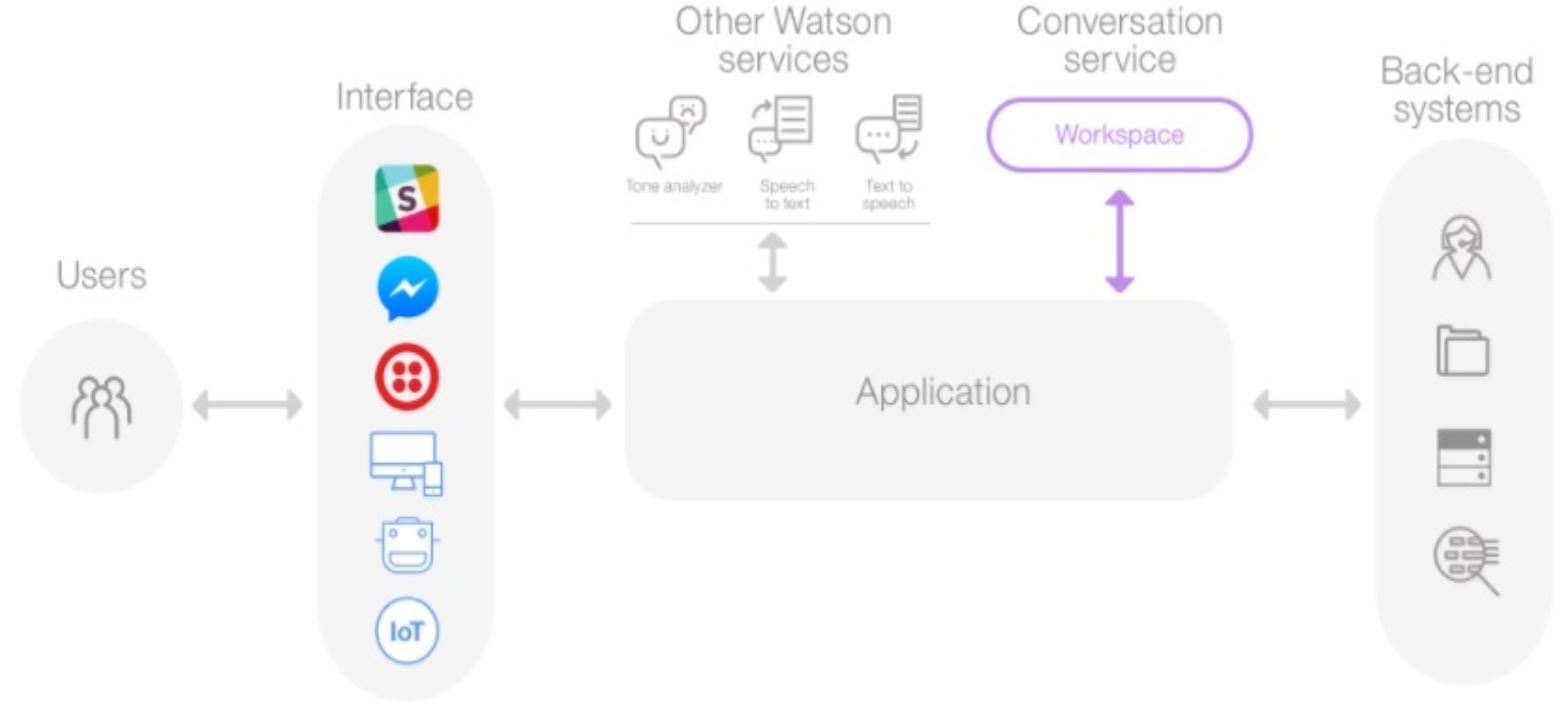
Diagram Showing IBM Watson AI-Powered Conversation Service.
Source: ibm.com

By understanding customers’ moods, the technology can direct them to the relevant employee for help through human interaction via chat or more traditional channels such as a telephone customer service line. Shop Direct aims to use the AI-based chatbot to free its workforce from repetitive tasks and to focus more on the interactions that really help customers. The company already uses conversational user interface (CUI) technology for its Very.co.uk chatbot to assist with customer queries, but the introduction of an AI-powered chatbot should raise the quality of the interactions. Shop Direct also uses machine learning to personalize consumer touchpoints, including homepage content and promotional emails.
Replenishment Optimization: Otto Group and Blue Yonder
German online and catalog retailer Otto Group shows how AI can be used for inventory management. Working with Blue Yonder—a market leading provider of AI solutions for retailers—the German firm uses AI to predict what customers will buy in the near future.
The technology was developed by Blue Yonder—which is partly owned by Otto Group—and was initially designed for particle physics experiments at the European Organization for Nuclear Research (CERN) in Geneva, Switzerland. It can analyze around three billion historical transactions and 200 other variables (such as weather conditions and website searches) to predict future purchases. This enables Otto Group to automatically process orders with partner suppliers for about 200,000 items a month.
The system helps Otto to stock what its customers are likely to buy, enabling the retailer to achieve faster deliveries and reduce returns. The solution can reportedly predict with 90% accuracy what will be sold within a 30-day period and allows Otto to reduce dramatically its delivery schedule for partner products—from seven days to one or two days—often enabling direct delivery from the supplier to the customer without passing through Otto’s warehouse.
Through Blue Yonder’s replenishment optimization solution, Otto also succeeded in reducing returns by two million items a year—because the sooner shoppers receive the items, the less time consumers have to shop around for better prices and return the products—and in cutting stock surplus by one-fifth, according to
The Economist.
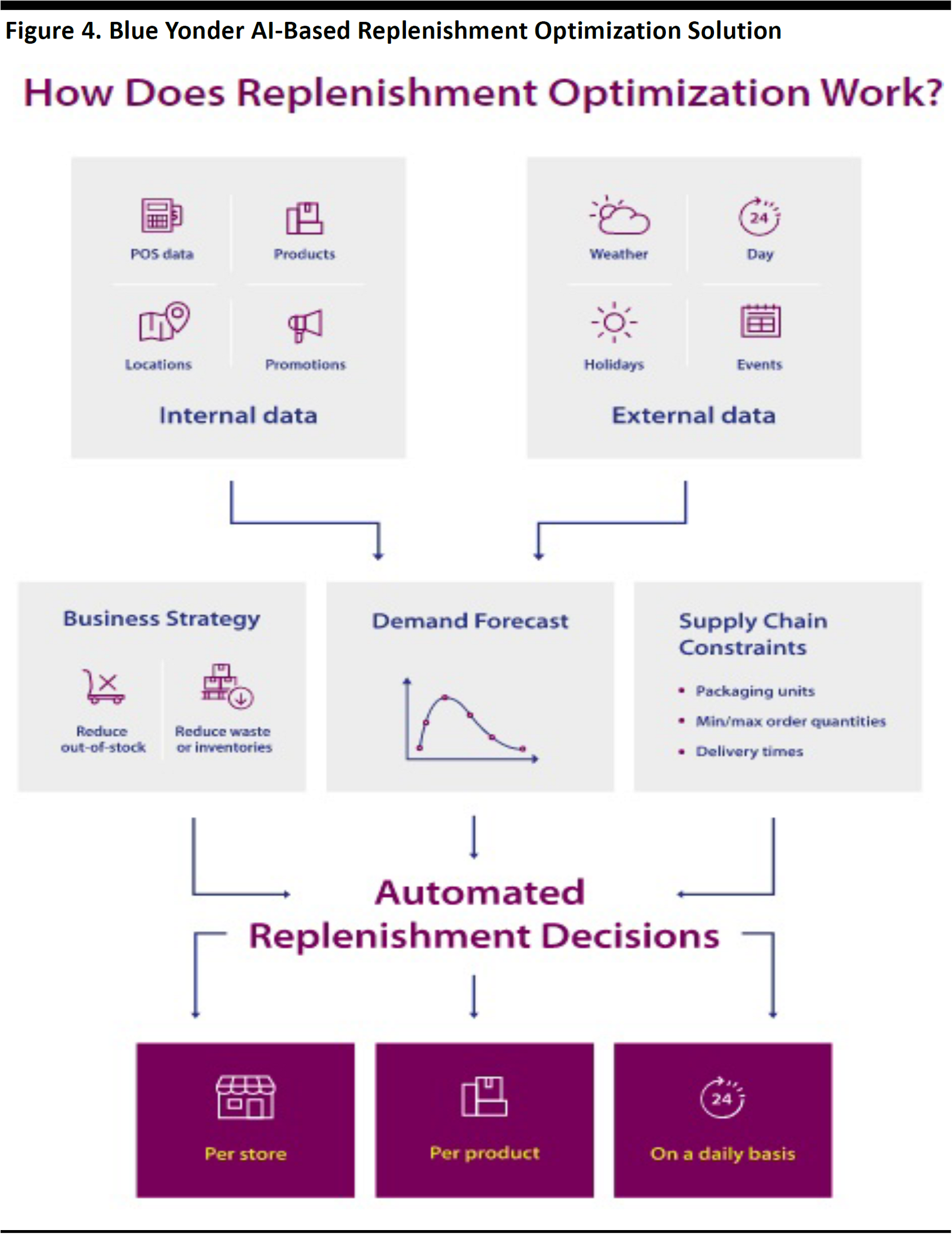
Source: blue-yonder.com
Otto Group also uses AI technology to offer a product evaluation feature that enables shoppers to select keywords that are most relevant to them from previous customers’ products reviews. Reviews are aggregated according to the keywords that best define their focus—for example, reviews about a washing machine can be grouped with themes such as “washing result.” The AI-based technology applies an algorithm that analyses over one million product reviews every day and groups them according to the main topic and whether they are positive, negative or neutral, so consumers can easily identify the most helpful reviews to inform their purchasing decision.
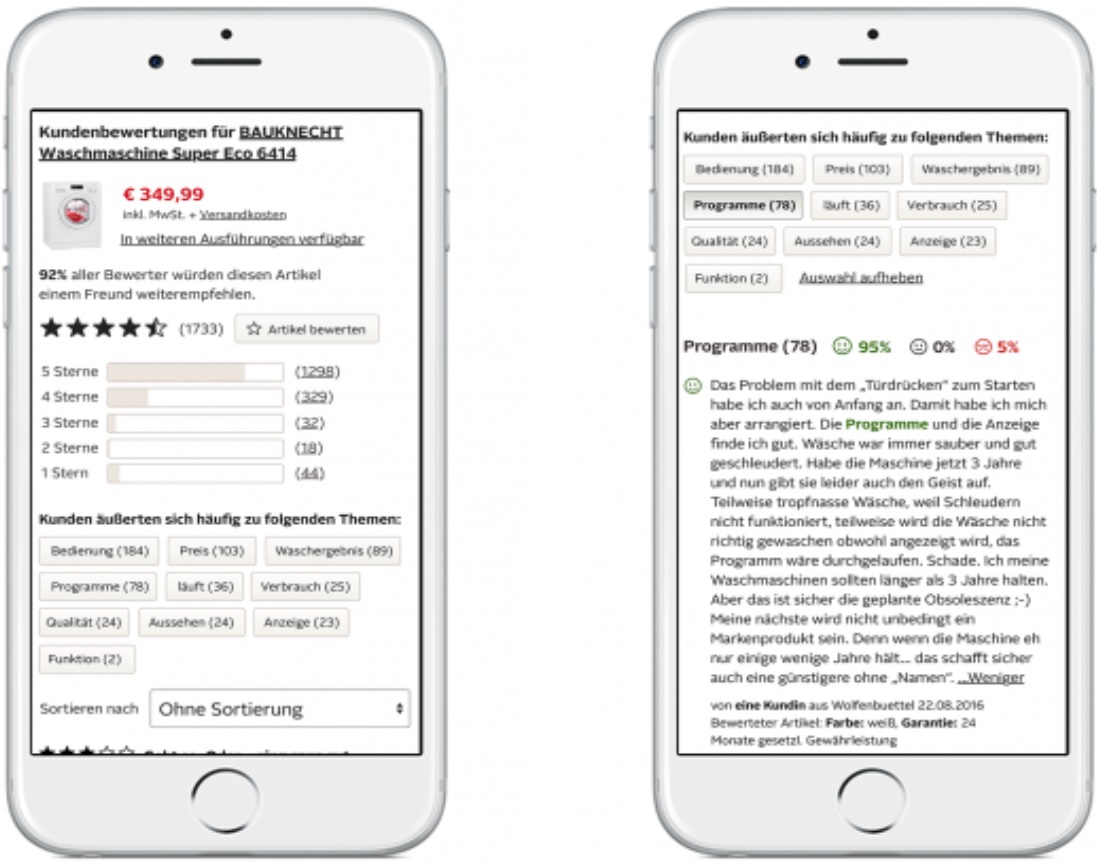
Otto’s AI-Based Product Evaluation Feature.
Source: otto.de
Interview on AI with Blue Yonder
Below, we include an interview focusing on the application of AI in retail that Fung Global Retail & Technology conducted with Professor Michael Feindt, Founder and Chief Scientific Officer at Blue Yonder.
Interview on AI with Professor Michael Feindt, Blue Yonder

Source: blue-yonder.com
FGRT: How does AI work and how can the technology successfully help running operations such as retail?
MF: To succeed, AI does require human input to set the strategic goals and direction in which they should optimize decisions. All the operational work can be done by fully automated machines, but there still is a requirement for the human touch to set the parameters.
The important point is how retailers can make use of AI to improve the customer experience and compete in a highly competitive environment with tiny margins. Supply chain and merchandising processes, in particular, where millions of decisions have to be made every day, can be optimized by AI.
AI consists of two main streams. The first is to learn what humans can do well, but which computers are not yet able to. Examples include object recognition in images (to see) or understanding voices (to hear). Such algorithms learn through examples, and this is how Amazon’s Alexa operates. These algorithms mainly change the human/machine interface.
The other element of AI is learning to optimize complex decisions and actions for specific, well-defined problems in order to not only automate, but also improve human decisions and avoid human biases.
Often super-human performance can be reached, e.g., in the ancient Chinese game ‘Go’ or in supply-chain decisions. Such algorithms only care about the contents. The quality of decisions and the value of actions is completely independent from the communication channel, whether Alexa tells you the answer or it is written on a screen or is directly relayed into an order system.
FGRT: What do you think will be the main application of AI in retail in the next few years? Will the technology be used more for the back office (inventory management) or for the front office (personalization/customer management)?
MF: To meet shoppers’ expectations in terms of quality, price and availability, retailers need to focus on their supply chain and merchandising processes to optimize replenishment and pricing on a daily basis. The right use of AI will enable retailers to automate the millions of decisions for each product and each store which are based on sales data and external factors such as weather and holidays. It also takes into account promotions and sales. Machines can do this much more accurately, and it gives the staff more room for serving customers in the store by offering a personal service and consultation. AI will probably be used both in the back and front offices.
FGRT: What is the impact on revenue and profitability of AI-powered inventory management for clients adopting Blue Yonder’s solution?
MF: AI-powered supply chain and pricing solutions are often the decisive differentiator between profit and loss, and are eminently important to survive in a competitive market with small margins.
FGRT: How AI will change retail in the next five years? What will be the impact? Will it be a priority for all major retailers to adopt AI solutions to make use of the large
amount of consumer data they have available thanks to digitalization and to keep up with competitors?
MF: Over the next five years, most operational processes in retail merchandising and the supply chain will be done by AI. With the likes of Amazon Go raising the bar, those retailers that do not adopt this approach will not survive. The best use of AI will enable the existing workforce to work smarter and focus on what they do best-delighting the customer. In addition, AI will allow retailers to transform into data-driven companies, enabling them to exceed operational excellence in merchandising and supply-chain processes.
Source: Fung Global Retail & Technology
Retailers Should Embrace AI to Stay Competitive
AI looks to be the best way retailers can capitalize on the abundance of customer data that are made available by the digitalization of the industry. Retailers that aim to remain competitive cannot ignore the potential benefits of AI. In the aforementioned
Retail Week/Qubit survey, 82% of respondents think that machine learning will have an impact on the retail industry.
Three reasons why retailers should invest in AI are:
- The ability to provide a personalized and straightforward shopping experience: AI is an effective way for retailers to deliver a tailored shopping experience, with proven benefits in conversion rates.
- The ability to scale up use of customer data: The digitalization of retail gives retailers access to an unprecedented level of consumer data. AI gives retailers the tools to manage more effectively this data and to use it to improve operations and profitability.
- Competitors are investing in AI: AI is attracting significant investments, and the retail industry is one of the top end-markets for the technology. With 12% of the global AI-generated revenue in 2015, retail is the third-largest end-market for the technology, according to market intelligence firm Tractica.
At a time of significant innovations in retail and in other industries, AI is one of the technologies that has raised the most interest.
A 2017 survey of 500 top North American retailers by research firm BRP found that 14% have already adopted AI-powered chatbots and digital assistants, while a further 32% plan to introduce the technology in the next three years.
AI and machine learning are among the top-five tech subsectors ranked by venture capital (VC) investment into London tech firms in the last six years, as shown below. During the same period, London-based AI and machine-learning companies attracted more than £207 million (US$267.2 million) in VC investment, according to data and technology provider PitchBook.
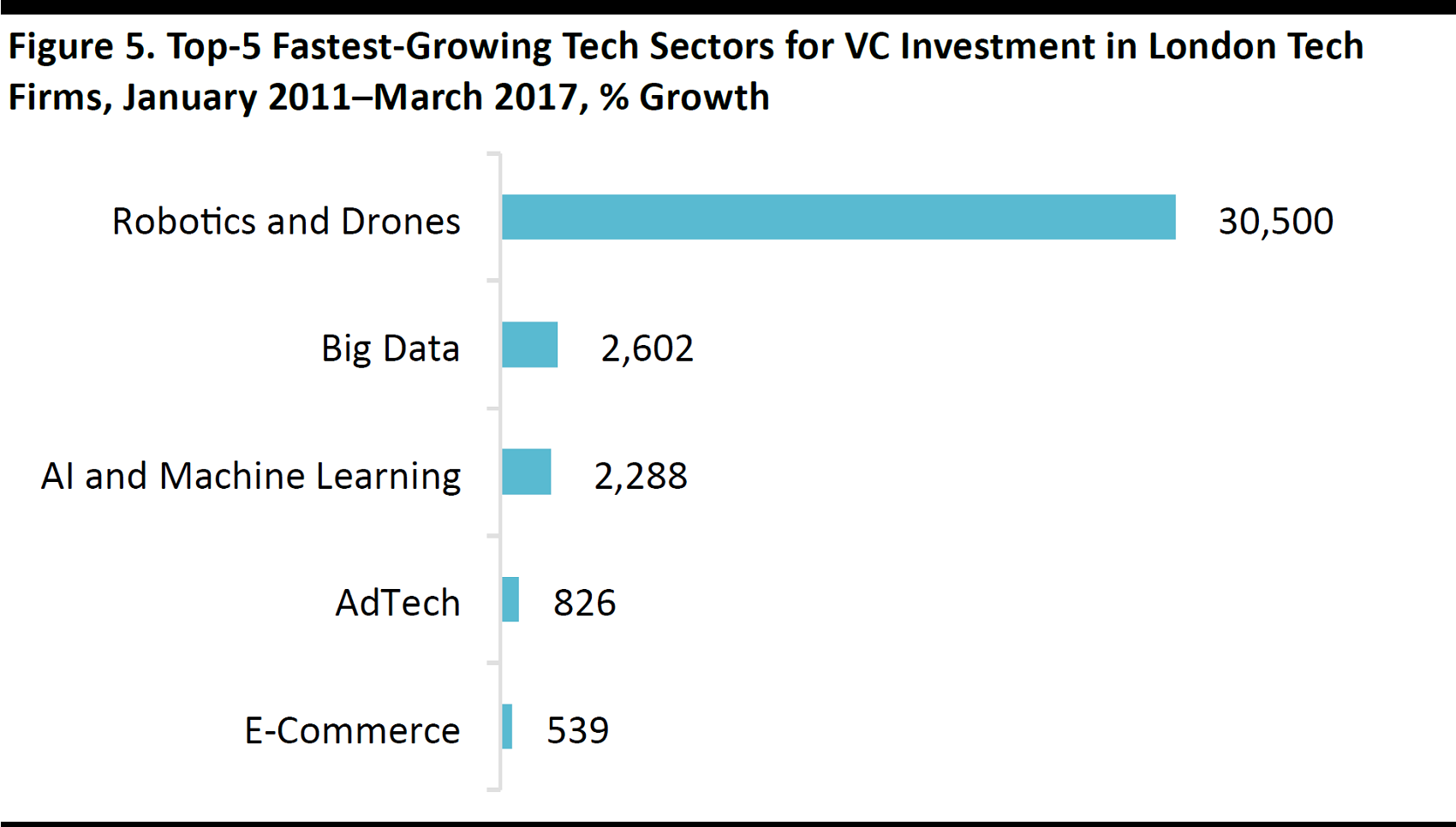
Source: PitchBook
Revenues generated from AI worldwide are forecast to grow by a CAGR of 53% in the period from 2017 through 2025, according to Tractica.
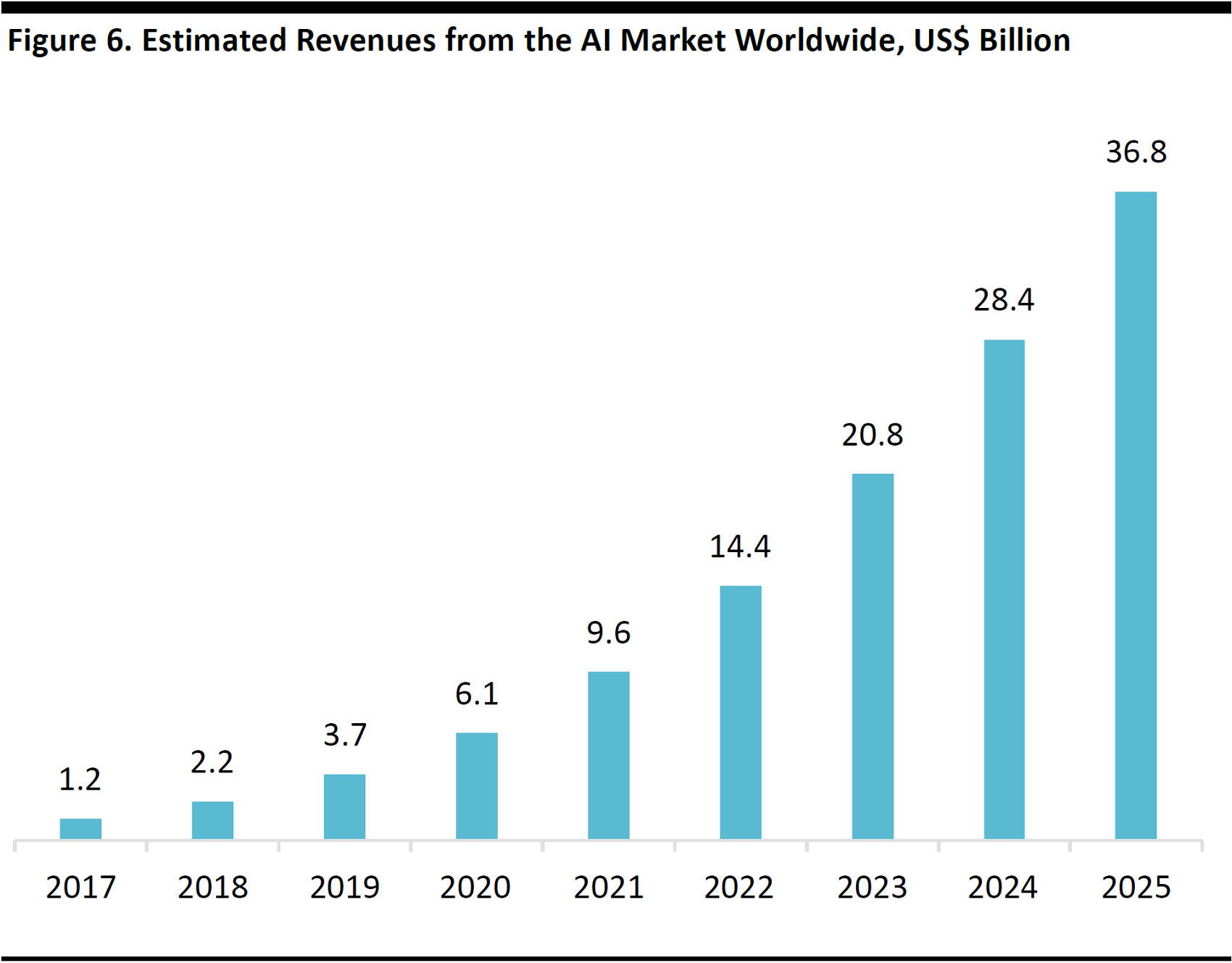
Source: Tractica
Key Takeaways
AI is used in retail to analyze customer data adapt the approach through which the company interacts with shoppers and predict consumer demand to enable better inventory management.
AI enables retailers to drive sales and anticipate demand, to gain a better understanding of consumer behavior and to offer highly accurate individualized promotions.
AI will likely have a significant impact on the future of the retail industry, and retailers that aim to remain competitive cannot ignore the potential benefits of AI.






 Sentient Technologies: Sentient also uses AI to help retailers increasing m-commerce conversion rates. The tech firm developed a mobile-friendly interface that encourages shoppers to interact by highlighting which products they like and do not like. The service learns from this information and uses it to recommend only the products that match each customer’s style, in the same way, a store associate could do in a brick-and-mortar store. This creates a more engaging and simpler way of shopping with a smartphone, and the company says it results in about 150 possible layout variations and a 38% increase in conversion rates.
The application of AI is particularly useful in m-commerce, where screen space is limited and it is very important to highlight the most relevant products for the customer. Currently, smartphones see a lower conversion rate compared to desktops—just 1.55% versus 4.14% in the fourth quarter of2016, according to analysis by tech firm Monetate.
Vue.ai: Another AI-powered service is offered by Vue.ai, a sub-brand of Indian tech startup Mad Street Den. The AI technology behind Vue.ai enables retailers to personalize the website based on individual shoppers’ preferences. The technology learns from shoppers’ browsing and shopping histories and displays items that match their preferences and provides personalized shopping recommendations. The service generates an increase of 144% in product viewing and a 110% increase in average order value, according to the company.
Sentient Technologies: Sentient also uses AI to help retailers increasing m-commerce conversion rates. The tech firm developed a mobile-friendly interface that encourages shoppers to interact by highlighting which products they like and do not like. The service learns from this information and uses it to recommend only the products that match each customer’s style, in the same way, a store associate could do in a brick-and-mortar store. This creates a more engaging and simpler way of shopping with a smartphone, and the company says it results in about 150 possible layout variations and a 38% increase in conversion rates.
The application of AI is particularly useful in m-commerce, where screen space is limited and it is very important to highlight the most relevant products for the customer. Currently, smartphones see a lower conversion rate compared to desktops—just 1.55% versus 4.14% in the fourth quarter of2016, according to analysis by tech firm Monetate.
Vue.ai: Another AI-powered service is offered by Vue.ai, a sub-brand of Indian tech startup Mad Street Den. The AI technology behind Vue.ai enables retailers to personalize the website based on individual shoppers’ preferences. The technology learns from shoppers’ browsing and shopping histories and displays items that match their preferences and provides personalized shopping recommendations. The service generates an increase of 144% in product viewing and a 110% increase in average order value, according to the company.


 By understanding customers’ moods, the technology can direct them to the relevant employee for help through human interaction via chat or more traditional channels such as a telephone customer service line. Shop Direct aims to use the AI-based chatbot to free its workforce from repetitive tasks and to focus more on the interactions that really help customers. The company already uses conversational user interface (CUI) technology for its Very.co.uk chatbot to assist with customer queries, but the introduction of an AI-powered chatbot should raise the quality of the interactions. Shop Direct also uses machine learning to personalize consumer touchpoints, including homepage content and promotional emails.
By understanding customers’ moods, the technology can direct them to the relevant employee for help through human interaction via chat or more traditional channels such as a telephone customer service line. Shop Direct aims to use the AI-based chatbot to free its workforce from repetitive tasks and to focus more on the interactions that really help customers. The company already uses conversational user interface (CUI) technology for its Very.co.uk chatbot to assist with customer queries, but the introduction of an AI-powered chatbot should raise the quality of the interactions. Shop Direct also uses machine learning to personalize consumer touchpoints, including homepage content and promotional emails.




